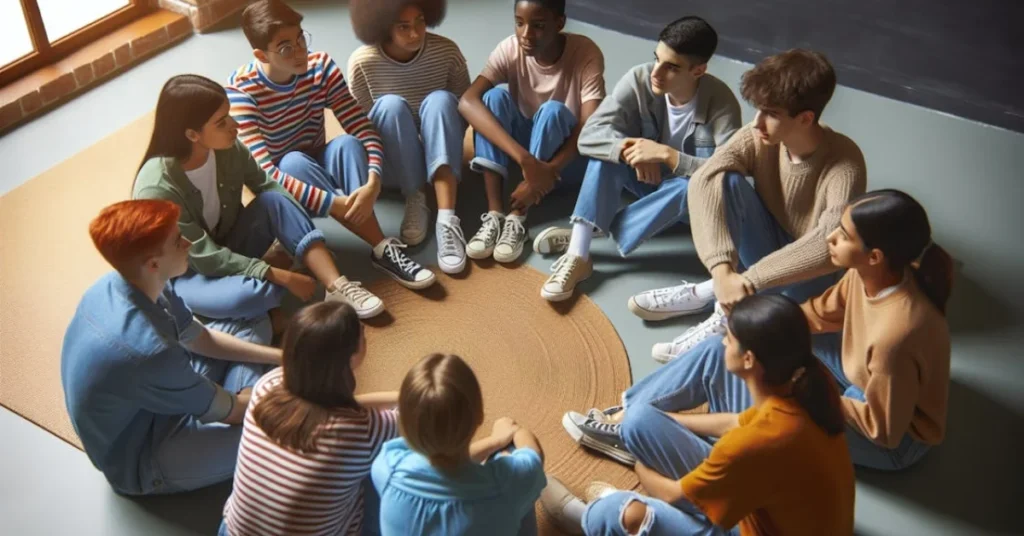
For serious students, the pursuit of academic excellence often means sacrificing leisure time for rigorous studies. However, neglecting the role of fun and relaxation can counterintuitively impede learning and mental acuity. By integrating enjoyable activities into daily routines, students can achieve a more holistic approach to education that promotes mental health and academic success. In this article, we explore how fun can positively impact cognitive functions and overall well-being. Keep reading to discover the benefits of balancing work with play.
The Role of Fun in Enhancing Cognitive Functions for Students
The human brain isn’t built for nonstop work; taking breaks to have fun can boost students’ cognitive functions. Enjoyable activities like playing strategy games or solving puzzles can improve memory, problem-solving skills, and creativity. These activities act as a refreshing mental break, making learning more effective and enjoyable.
Fun triggers dopamine release, enhancing mood, attention, and memory, which can make study sessions more productive. Interestingly, engaging in recreational activities like live free slots can offer similar cognitive benefits by stimulating the brain’s reward pathways when enjoyed in moderation.
Combating Stress and Anxiety Through Leisure Activities
Academic pressure often leads to increased stress and anxiety among students. Leisure activities provide a counterbalance, reducing stress hormones and improving mood. They also boost the immune system, reducing the risk of stress-related illnesses. Social activities foster emotional resilience, creating support networks during challenging times. Physical activities and sports help manage stress and anxiety by channeling tension into physical exertion, clearing the mind, and promoting well-being.
Even simple activities like a park walk or ultimate frisbee can significantly improve mental state. Creative pursuits like music, art, or writing provide a therapeutic avenue for self-expression, helping students process emotions and thoughts, leading to better mental clarity and reduced anxiety, ultimately assisting in maintaining focus on studies.
The Relationship Between Recreational Time and Academic Performance
Research indicates that regular participation in leisure activities can improve academic performance. This is due to the need for a healthy balance between study and play. Students who balance their academic responsibilities with personal interests develop better time management skills, leading to more efficient study habits. Structured fun can also stimulate focused work during study periods.
Recreational activities also help prevent burnout by providing diverse experiences that refresh students’ perspectives and enthusiasm for learning. Overly monotonous study regimens can lead to a decline in academic performance. Team-based recreational activities develop collaborative skills that are directly applicable to group study or project work, enhancing communication, idea sharing, and goal-setting. These activities contribute to a student’s overall academic success.
Incorporating Play into Study Routines for Improved Mental Health
Integrating play into study routines can improve focus, and mental stamina, and reduce procrastination and avoidance behaviors. Mindfulness practices like yoga or meditation can promote mental clarity and stress relief, enhancing overall productivity. Self-awareness about stress and fatigue can guide when to incorporate fun into routines.
Tailoring leisure activities to meet individual needs ensures each break is effective in revitalizing both body and mind. This customization is the cornerstone of a sustainable study plan that nurtures mental health. Incorporating play is not a lack of seriousness; it is a strategic approach to maintaining mental health while pursuing academic goals. Various relaxation methods, such as hobbies or digital detoxes, can make study routines more humane and sustainable in the long run.
Cultivating a Balanced Life: The Importance of Downtime for Serious Students
Modern students often find themselves overwhelmed by assignments, exams, and extracurricular activities, making it difficult to find time for rest. However, balancing work with downtime is crucial for long-term success, regardless of the field, whether you’re pursuing a bachelor’s in public health online or studying another demanding subject.
Downtime is not wasted time; it allows the mind to recharge and fosters creativity. Incorporating hobbies unrelated to academics can provide fresh perspectives and help students approach complex problems in new ways, ultimately enhancing their academic performance.
Overall, the value of fun in the life of a serious student cannot be overstated. A deliberate effort to balance study with leisure not only nurtures cognitive functions and mental health but also promotes superior academic performance. A balanced approach to life is not only enjoyable but strategically beneficial for students who wish to thrive in their educational endeavors and beyond.

